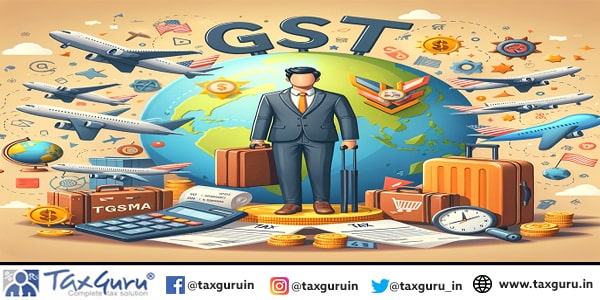
There are a lot of us who enjoy traveling, some of us prefer to travel domestically, while others prefer to travel abroad. However, before traveling, everyone plans their trip according to their convenience, but oftentimes they overlook other associated expenses like GST. This is because, as we all know, the GST department has introduced various rates for different types of travel-related expenses.
In this article, we will learn what are the compliance needs to follow, what are the procedures for travel agents, and what are the primary differences between tour operators and travel agents. We will also understand why there is a variation in the GST rate that they supply to consumers.
Definition and meaning of Travel Agent:
A travel agent arranges travel for end clients (individuals, groups, corporations) on behalf of suppliers (hotels, airlines, vehicle rentals, cruise lines, trains, travel insurance, package tours). His responsibility is to simplify the holiday planning process for their consumers, in addition to providing consultancy services and complete travel packages.
An agent can be self-employed, work for an independent travel agency, or be a member of a travel agency group. Agents often collect a 10 to 15% commission from lodgings, transportation companies, and attractions for managing trip bookings.
Difference between Tour operators vs. Travel agents:
A] Tour Operator:

B] Travel Agent:
The threshold limits for GST registration of travel agents:
Every tour operator with a turnover of more than Rs. Twenty lakhs in the previous fiscal year must obtain GST registration. Furthermore, for specific categories or states, the turnover maximum is Rs. 10 lakhs.
In simpler terms, tour operators in states:
If their annual turnover exceeds ten lakh rupees, they must register for GST and file a GST return.
However, it is important to note that the turnover threshold does not always apply. For example, a person making an interstate taxable supply. For example, a person that, as an operator or otherwise, delivers taxable supply of goods or services, or both, on behalf of another taxable person, such as an air travel agency, must obtain GST registration in India.
The Place of Supply:
E.g.:- When an agent is paid by a hotel or cruise:
| Location Of Agent | Location of Hotel | Place of supply of travel agent | Tax to be charged |
| Mumbai | Delhi | Delhi | IGST |
| Mumbai | Up | Up | IGST |
| Mumbai | London | Mumbai | CGST+SGST |
The GST rate for travel agent:
Travel agents are typically required to charge 18% GST on their commission; however, when the agent provides air transportation services, the GST is levied in accordance with Rule 32 of the VGST Rule 2017.
According to CGST Rule 32(3), the value of the services rendered by an air travel agency in connection with the booking of airline tickets shall be determined at the rate of
1. Domestic booking :- 5% of the basic fare
2. International booking :- 10% of the basic fare
GST payable by Air Travel Agent:
A] Commission from Airline:
1. Domestic Air Ticket – GST @18% on 5% of Basic Fare
2. International Air Ticket – GST @ 18% on 10% of Basic Fare
B] Service charge from clients:
GST @ 18% on Service Charge Etc.
Conclusion:
The thorough explanation given above states that all services rendered to clients by travel agents are liable to taxes under the GST tax system. So that you may confidently plan the budget for your upcoming vacation, be sure to comprehend the GST that your travel agent charges you for the services he provides.
We are open for comments and suggestions.
The above article has been prepared as by Mr. Sachin Vishwakarma ([email protected]) and reviewed by Mr. Suyash Tripathi ([email protected])